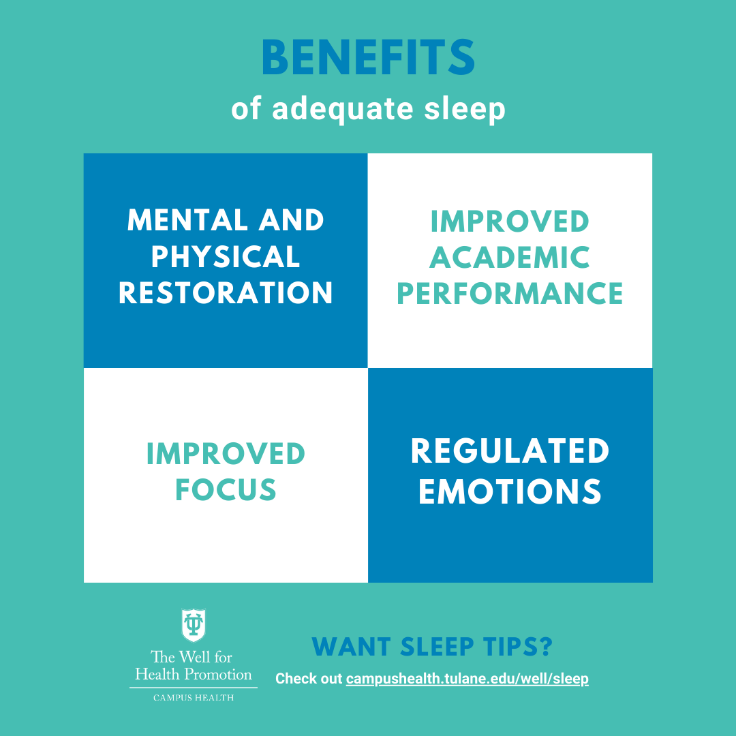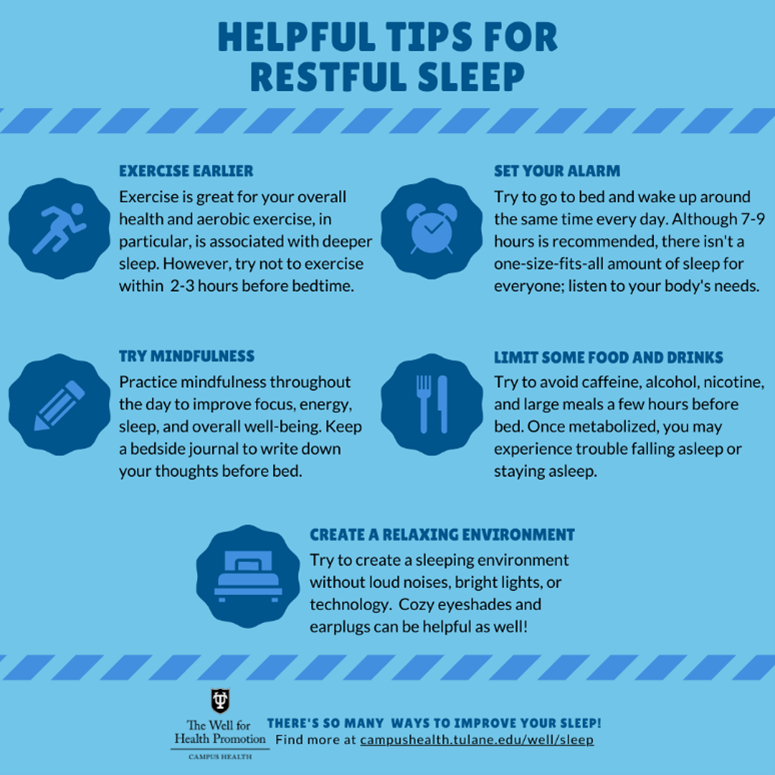Sleep is essential to your overall well-being and is strongly linked to academic success. Prioritizing sleep when there is a lot going on can be difficult, but taking steps to plan for a good night's rest will help you thrive at Tulane.
Check out our eHealth Tools for a list of helpful apps with relaxing music, meditations, nighttime stories, and more that can help you get a good night’s sleep.

The benefits from a getting good sleep:
- Memories get merged and stored, which helps with learning
- Ability to focus is restored
- Muscles in the body rest, recover, and repair
- Better overall health
- Regulated metabolism and emotions
- Improved performance in school
20-30-minute naps can help with:
- Increased alertness and attention
- Higher energy levels throughout waking hours
- Increased reaction time and reduced mistakes and accidents
- Decreased irritability

- Exercise for at least 30 minutes during the day, but not 2-3 hours before bedtime.
- Avoid caffeine, alcohol, nicotine, and large meals a few hours before bed.
- Try to create a sleeping environment without loud noises, bright lights, or technology. Check your phone settings for Night Shift settings. Cozy eye shades and earplugs can be helpful as well!
- Practice mindfulness throughout the day to improve focus, energy, sleep, and overall well-being.
- Set a calm alarm at night to prompt your transition to bedtime.
- Try to go to bed and wake up around the same time every day.
- Try not to hit snooze. Experts say that those extra 10 minutes will only leave you groggier.
- Try taking a 20-30-minute mid-day nap for improved alertness and performance without leaving you feeling groggy or interfering with nighttime sleep.
- If you are having trouble falling asleep because of worries or thoughts, spend a few minutes writing them down in a bedside journal.
- If 15-20 minutes have passed and you are unable to fall asleep, try some gentle yoga or reading.
- Consult a professional if sleep difficulties persist. There are programs and services on campus that can offer support. Contact CAPS or The Health Center for a consultation.
Tulane Nap Map!
Our on-campus Nap Map represents the best napping spots on campus, as voted on by Tulane students! Use this map to locate your optimal napping spot. Click on each location for more detail.
Safety Tip: Remember to use caution when picking a nap spot and always keep your belongings with you. If you are napping somewhere other than your room, use your backpack as a pillow and make sure nothing valuable is sitting out.
Explore More
- Invest in Rest Workshop
- National Sleep Foundation
- Harvard Healthy Sleep
- National Institute of Health Healthy Sleep Guide
- Sleep Education
- JED Sleep Cards
- NHLBI Sleep Guide
Check out our eHealth Tools for a list of helpful apps with relaxing music, meditations, nighttime stories, and more that can help you get a good night’s sleep.
